Climate Solutions Council members
The Climate Solutions Council is made up of leaders representing First Nations, environmental organizations, industry, academia, youth, labour and local government.
On this page
Council co-chairs
Colleen Giroux-Schmidt, vice president, corporate relations and environment, Innergex Renewable Energy

Colleen Giroux-Schmidt is a leader in the renewable energy sector, bringing over 20 years of experience in resource development. She is recognized for her expertise in government relations, policy advocacy, project development, environmental stewardship, and building strategic partnerships across diverse groups. As vice president, corporate relations and environment at Innergex Renewable Energy Inc., Colleen leads a team focused on strategic engagement with governments, Indigenous communities, local stakeholders, and industry partners to advance renewable energy initiatives and support climate change goals. Her team leads the policy research and advocacy portfolio with the goal of increasing renewable energy opportunities to help the jurisdictions meet their climate change goals. She also oversees Innergex's environmental obligations and provides strategic direction to a team of environmental professionals.
Beyond her corporate leadership, Colleen has contributed to numerous government working groups and task forces at provincial and federal levels, and her work has been nationally recognized for advancing clean energy transition and shaping policy frameworks that foster sustainable development. Colleen holds a Bachelor of Arts in history and English from Simon Fraser University, an educational foundation that honed her exceptional communication skills.
Nancy Olewiler, professor emerita, School of Public Policy, Simon Fraser University
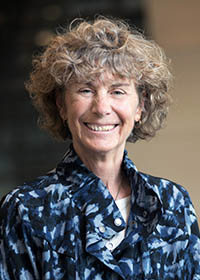
Nancy Olewiler is an economist and professor emerita in the School of Public Policy, Simon Fraser University (SFU). Prior to coming to the economics department at SFU in 1990, she was a professor in the economics department at Queen’s University. Her PhD is in economics from the University of British Columbia. Nancy's areas of research include natural resource and environmental economics and public policy. She has published widely on a range of environmental and natural resource issues, including studies on energy and climate policy, natural capital and ecosystem services, managing catastrophic risk, and federal tax policy. She has served on federal and provincial government advisory committees and is currently chair of the Macroeconomics Accounts Advisory Committee for Statistics Canada, and a member of the Mitigation and Adaptation Expert Committees of the Canadian Climate Institute. She has been a board member of TransLink, BC Hydro, Technical Safety BC, and the Pembina Institute, and is currently on the boards of the Institute for Research on Public Policy and Genome BC.
Council members
Denni Clement, climate action peer network lead, Coastal First Nations-Great Bear Initiative

Denni Clement is from ʔaq̓am, a Ktunaxa Nation community located in the Kootenay region of B.C. She is a community engagement, climate resilience and sustainability specialist. Denni led the creation of ʔaq̓am’s comprehensive community plan from 2009 to 2011 and is currently supporting the plan renewal. She is a lead author for the B.C. chapter of the national assessment on climate change titled “Canada in a Changing Climate” and is co-chair of B.C.’s Indigenous Climate Adaptation Working Group. Denni is a member of the Pinna Sustainability team and has supported several initiatives engaging Indigenous communities across B.C. on climate change. This includes leading Indigenous engagement for the University of Victoria’s Climate and Sustainability Action Plan. Currently, as the Coastal First Nations-Great Bear Initiative’s Indigenous climate action network lead, she supports communities to advance their climate action needs. Denni holds a Bachelor of Arts with distinction from the University of Victoria.
Linda Coady, recent president and CEO, BC Council of Forest Industries
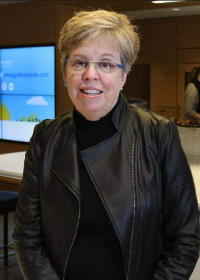
Linda Coady is recent president and CEO of the BC Council of Forest Industries (COFI), an industry trade association that represents forest companies in B.C. that produce wood for construction, pulp and paper, and bioenergy. Prior to joining COFI, Linda was the executive director of the Alberta-based Pembina Institute, a Canadian non-profit environmental think tank on climate and energy issues. Her previous roles have also included chief sustainability officer for Enbridge Inc., vice-president of sustainability for the Vancouver 2010 Winter Olympic Games, vice-president of the Pacific Region of World Wildlife Fund Canada, and vice-president of environmental affairs for the B.C. Coastal Group of Weyerhaeuser Canada and MacMillan Bloedel Ltd. Linda has been a member of the Climate Advisory Body to the Government of Alberta, and a member of Canada’s Net-Zero Advisory Body, which provides independent advice to the federal government on meeting requirements under Canada’s Net-Zero Emissions Accountability Act.
Ashley Duncan, president, BC Insulators Local 118

Ashley Duncan is the president of the BC Insulators Local 118, and the membership development coordinator for the International Association of Heat and Frost Insulators & Allied Workers, which represents over 6,000 members across Canada and 25,000 members across North America. BC Insulators have worked tirelessly to promote the reality that they’re the original “green trade” and have utilized energy audits to work toward retrofitting mechanical systems in buildings across Canada with the goal of lowering costs and reducing the environmental footprint. Ashley previously worked as the vice president and sustainability coordinator for the BC Insulators, and now works with International helping with energy audits across North America.
Mahmudur Fatmi, associate professor, Department of Civil Engineering, University of British Columbia, Okanagan campus

Mahmudur Fatmi is an associate professor at UBC Okanagan, where his research area is in sustainable transportation modelling – specifically, developing innovative travel behavioural models and agent-based simulation tools to assist in transportation and land use planning and infrastructure investment decision making. His research results provide insights and input towards making low-cost and sustainable travel options available in an equitable way and decarbonizing the transportation sector. He is associate editor of Journal of Transport and Land Use, and paper review coordinator of Transportation Research Board’s standing committee on the Effects of Information and Communication Technologies on Travel Choices, National Academies and vice president of Canadian Transportation Research Forum. He received his BSc in civil engineering from BUET, Bangladesh, and a doctoral degree in civil engineering from Dalhousie University, Canada.
Thomas Green, senior climate policy adviser, David Suzuki Foundation

Thomas Green is a senior climate policy adviser at the David Suzuki Foundation, working to advance climate policies to rapidly reduce emissions and accelerate the shift to a clean economy powered by affordable, reliable clean energy. He advocates for strong federal and provincial climate policies on methane, transportation, clean electricity, carbon pricing and an oil and gas emissions cap. From 2019 to 2022, he led the foundation’s Clean Power Pathways project, a collaboration that coupled electricity decarbonization modelling research with public engagement to advance a national zero-emissions electricity grid by 2035.
Thomas has a PhD from the University of British Columbia and has carried out research and taught at Universidad del Rosario in Bogotá, Colombia, Simon Fraser University, Royal Roads University, Quest University Canada and the Stockholm Resilience Centre. He was also a founding member of the Canadian Society for Ecological Economics. Previously, Thomas worked as director of socioeconomics for the Rainforest Solutions Project and advisor and assistant to the chief negotiator for the Innu Nation.
Kathryn Harrison, professor, Department of Political Science, University of British Columbia

Kathryn Harrison is a professor of political science at the University of British Columbia (UBC). She received bachelor’s and master’s degrees in chemical engineering from Western University and the Massachusetts Institute of Technology (MIT), and master’s and doctoral degrees in political science from MIT and UBC. Before entering academia, Harrison worked as a chemical engineer in the oil industry, and as a policy analyst for the United States Congress and Environment Canada. Professor Harrison has served in leadership positions at UBC as associate dean and acting dean in the Faculty of Arts. Her scholarship on Canadian and US environmental and climate policy has received awards including Fulbright and Killam Fellowships.
Matt Horne, climate manager, City of Vancouver

Matt Horne is the climate manager at the City of Vancouver. He is responsible for the city's Climate Emergency Action Plan, including the target of cutting carbon pollution in half by 2030. He has worked on climate change issues for over 20 years with the city, the Climate Action Secretariat, and the Pembina Institute. He's had the opportunity to be an advisor on B.C.'s climate and clean energy plans over the past decade and is also an adjunct professor at Simon Fraser University.
Eden Luymes, youth engagement coordinator, Canadian Parks and Wilderness Society of BC

Eden Luymes is a youth climate activist passionate about environmental policy and climate justice. She was born and raised in the Fraser Valley and is currently working as a youth engagement coordinator with the Canadian Parks and Wilderness Society of BC.
Eden holds a master's in political science from the University of British Columbia (UBC), and undergraduate degrees from UBC, with an honours in political science with international relations, and from the Paris Institute of Political Studies. Her academic research focuses on climate justice and global climate governance. Eden has worked for a variety of environmental non-governmental organizations and government organizations including BC Parks, the United Nations Environment Programme, the Stanley Park Ecology Society and the Thetis Island Nature Conservancy. She was also a youth delegate with the British Columbia Council for International Cooperation to the 2021 COP26 in Glasgow. Eden sees addressing climate change as an unprecedented opportunity to heal our relationships with the Earth and with each other and is excited to represent the interests of youth on the Climate Solutions Council.
Scott Maloney, vice president environment, Teck Resources
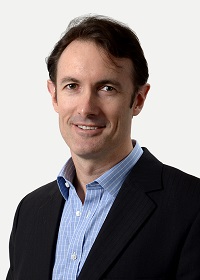
Scott Maloney is vice president, environment with Teck Resources, and is responsible for overseeing environment and climate change strategy and performance across Teck Resources' global portfolio of projects, operations and legacy properties. Scott’s team enables delivery of Teck Resources' climate change strategy and goal of being carbon neutral by 2050. He has worked in sustainability leadership for 25 years, first as a regulator and then with the mining industry across Australia, Asia, Africa, South America and now Canada. He has experience in the petroleum, waste management and mining industries, along with the development of strategies to reduce greenhouse gas emissions, and is chair of the Climate Change Working Group for the International Council on Mining and Metals. Scott holds a Bachelor of Chemical Engineering (Hons) from Monash University, and a Master of Business Administration from Curtin University.
Skye McConnell, head of corporate relations, Shell Canada
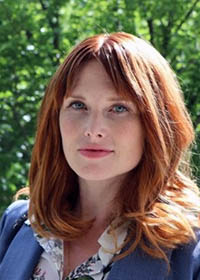
Skye McConnell holds the position of head of corporate relations for Shell Canada, where she oversees strategic communications, media, government and stakeholder relations, and social performance. With over 25 years at Shell, Skye has held various leadership roles both in Canada and internationally, including a senior global advisory position in the Netherlands. Her expertise spans stakeholder and Indigenous engagement, government relations, and environmental, reputation, regulatory, and risk management. Skye is recognized for her strategic vision, outcome-foducsed delivery, and passion for collaboration, teamwork, and quality decision-making.
Madeleine McPherson, associate professor, Department of Civil Engineering, University of Victoria
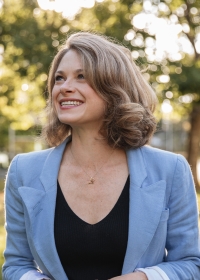
Madeleine McPherson is an associate professor in the department of Civil Engineering and the associate director of the Institute for Integrated Energy Systems at the University of Victoria. As the principal investigator of the Sustainable Energy Systems Integration & Transitions Group, Madeleine and her team develop models to explore electrification and energy systems integration and apply those models with stakeholders to co-create decarbonization pathways. McPherson is a co-founder and an executive member of the Energy Modelling Hub, which is convening a national dialogue between modelers and stakeholders around decarbonizing Canada’s energy system.
Nangkilslas, Trent Moraes, Deputy Chief Councillor, Skidegate Band Council
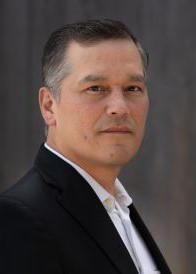
Nangkilslas, Trent Moraes, is a Haida leader from Skidegate, Haida Gwaii and currently serves as Deputy Chief Councillor for the Skidegate Band Council. He has over a decade of experience in administration, notably as director of Housing, Lands & Energy, where he helped establish and manage Skidegate's energy portfolio.
Trent is an active member of various advisory groups, including the First Nations Home Energy Save Advisory, Indigenous Clean Energy Opportunity Electricity Table, and chairs several initiatives such as the Indigenous Service Canada Aboriginal Capital Committee, Indigenous Climate Adaptation Working Group, Indigenous Coastal Climate Coalition, and Remote Community Energy Strategy Working Group. The Remote Community Energy Strategy Working Group earned recognition with the Premier's Award for Innovation and Excellence in the category of regional impact in November 2024.
A strong advocate for community-based energy solutions, Trent has driven projects that assess community needs, promote energy efficiency, and invest in renewable technologies such as solar hot water and solar photovoltaics for residential and community buildings. His efforts continue to support all First Nations in advancing their energy initiatives and climate resilience.
Freya Phillips, senior energy specialist, Regional District of Kootenay Boundary
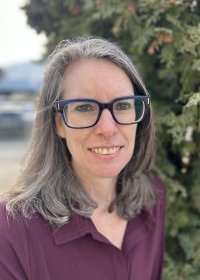
Freya Phillips is the senior energy specialist at the Regional District of Kootenay Boundary (RDKB), leading the district's transition to a net-zero emissions future. She has created policies and programs, such as the climate action plan, with a focus on community engagement and bringing together climate mitigation and resilience. Freya has led projects like the low-carbon fleet initiative and RDKB HomeSmart retrofit program, showcasing rural government's sustainable innovation.
She has over 30 years of global experience in climate change and energy management, policy development, project management, and engineering. Her extensive career encompasses diverse industry sectors and consultancy roles, providing her with a comprehensive understanding of environmental and climate challenges.
Freya holds a Bachelor of Engineering (Hons) from Monash University and is an accredited change management practitioner.
Danielle (DJ) Pohl, vice president, BC General Employees' Union, Administrative Professionals Component 12

Danielle (DJ) Pohl is the vice president for the Administrative Professionals Component 12 of the BC General Employees' Union (BCGEU). DJ is a paralegal with the BC Prosecution Service in Chilliwack and is currently the treasurer for the Fraser Valley Labour Council. Within the labour movement, DJ is a member of the BC Federation of Labour Climate, Justice and Jobs Committee and is also appointed to the BCGEU Provincial Executive Environment Committee. She participates in national and international labour, climate and just transition initiatives and is also passionate about organizing around environmental and social justice issues in the community. She has a Bachelor of Arts in criminal justice from the University of the Fraser Valley and has spent most of her life in the Fraser Valley where she lives today.
Andrea Reimer, community organizer, educator and policymaker

Andrea Reimer is a long-time community organizer, educator and policymaker. She served four terms in local government in Vancouver, including 10 years at Vancouver City Council (2008-2018) where she led the Greenest City initiative, and was instrumental in making Vancouver the first major city in the Americas to commit to 100 percent renewable energy and the first government in Canada to commit to implementing the articles of the United Nations Declaration on the Rights of Indigenous Peoples Act.
During her time at Vancouver City Council, Andrea was also appointed to the Metro Vancouver Regional District where she was vice-chair of the Climate Action Committee. She also served as the vice chair of the national Green Municipal Fund.
In recognition of her policy leadership, Andrea has received a number of awards including a Loeb Fellowship at Harvard’s Graduate School of Design in 2019. She returned to Vancouver to found Tawâw Strategies - a strategic consultancy firm that supports courageous leaders to make bold policy - and teach power literacy at University of British Columbia and Simon Fraser University. She serves on several boards, including TransLink.
Michelle Staples, mayor of Duncan

Michelle Staples has a background in environmental activism reaching back to her early teens. Those early experiences led her into farming, permaculture and eventually sharing her years of experience through education. She has worked for over 10 years as a facilitator engaging youth in climate action, hope and learning. She has worked with an Elders team from Cowichan delivering presentations on topics related to the impacts of climate on culture, climate grief, protection and ecosystem restoration. She became the City of Duncan’s first female mayor in 2018, and is currently serving her second term in that position. She serves as one of the founders and co-chairs of the Vancouver Island and Coastal Climate Committee and recently has been appointed through her regional district role to the Cowichan Watershed Board. She is committed to completing her Master of Integrated Studies and has an educational background in business administration and applied communication.
Jill Tipping, chief executive officer, BC Tech

Jill Tipping is a passionate advocate for B.C. and its tech-enabled future. With a background in consulting, advanced manufacturing and cleantech, she's no stranger to the opportunities technology provides. As BC Tech’s chief executive officer, she is dedicated to accelerating the success of members, helping more startups grow into scaleups and more scaleups grow into anchors. Jill’s focus is on developing a new economic narrative for B.C.'s 21st century economy and sees technology as essential to building resilience and growth in every industry. She is unapologetically ambitious for B.C. and Canada.
B.C. Government (ex officio)
Peter Pokorny, deputy minister, Ministry of Energy and Climate Solutions
Peter Pokorny was appointed Deputy Minister of Energy and Climate Solutions (ECS) on November 18, 2024.
Prior to joining ECS, Peter served for four years as Associate Deputy Minister at the Ministry of Health and, more recently, three years as Deputy Minister for the Ministry of Agriculture and Food.
At the Ministry of Health, Peter was responsible for health system operations, including operational response to the COVID 19 pandemic and procurement of Personal Protective Equipment for the health system.
As Deputy Minister of Agriculture and Food, Peter formed strong relationships with farmers, ranchers, and industry associations, and helped the sector manage through several successive and challenging events including flood, drought, fire, freeze, and an Avian Influenza outbreak.
Peter’s 20-plus year career in the BC Public Service has also involved leadership roles at the BC Energy Regulator and a wide range of Ministries, including Finance; Transportation; Forests, Lands, and Natural Resource Operations; and Energy, Mines, and Petroleum Resources.
Peter holds an Honours Bachelor’s Degree in Political Science from Brock University and a Master’s Degree in Public Administration from the University of Victoria.

